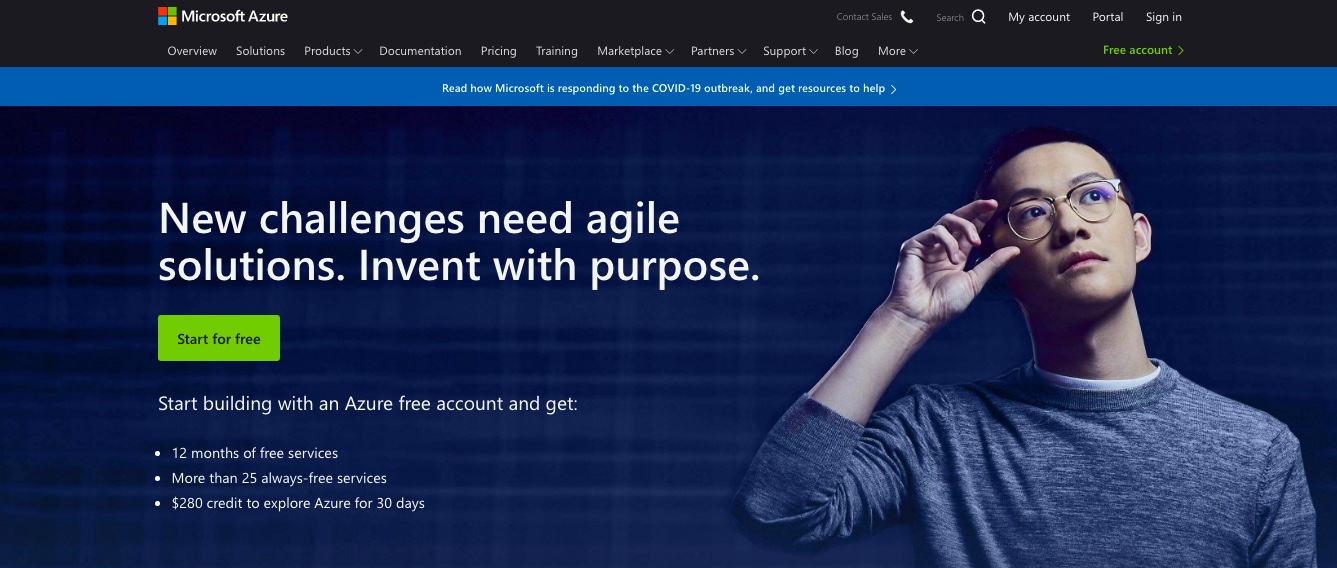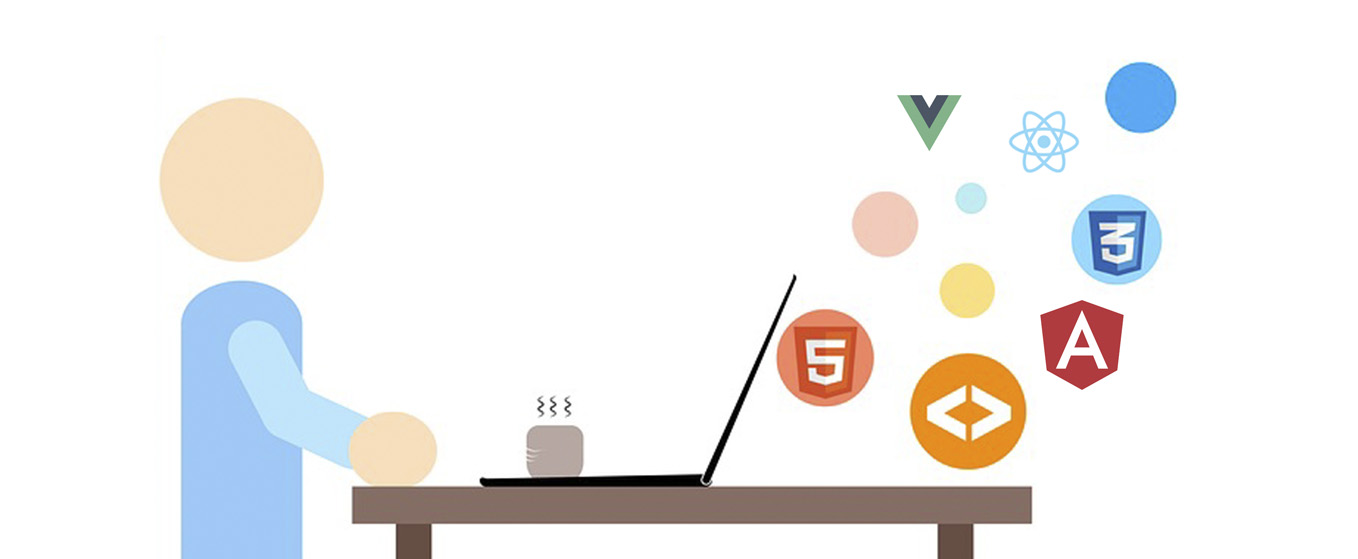
Which one is the best cloud platform: AWS, Azure, or Google cloud?
Last updated: May 01, 2020
The competition for leadership in the cloud market is a fierce 3-way battle: AWS vs. Azure vs. GCP. We compared these giant cloud service providers to see where they hold the commanding position and which is the best option for you.
Introduction

Amazon Web Services
Launched in 2006, AWS is the oldest and most experienced player in the cloud market. Since inception, as a subsidiary of the big Amazon holding, AWS provides an on-demand cloud computing platform to companies, individuals, and governments.
The services offered by AWS such as Elastic Compute Cloud (EC2), Simple Storage Service (Amazon S3), and Elastic Block Store (EBS) provide reliable and cheap cloud infrastructure for a huge number of users all over the globe.
Microsoft Azure
Microsoft Azure initially called Azure is Microsoft’s response to the growing market of cloud computing, and its primary goal is to provide competent cloud-based solutions for businesses and includes services such as Infrastructure as a Service (IaaS), Platform as a Service (PaaS), and Software as a Service (SaaS).
Since establishment in 2010, Microsoft Azure has made great progress among its competitors.
Google Cloud Platform
Google’s cloud computing service, founded in 2011 was initially intended to fortify Google Products such as Google Search Engine and YouTube, but now it is available to individuals and enterprises that want to make use of the same infrastructure these giant products rely on.
With Google Cloud Platform (GCP), Google managed to demonstrate a good presence in the cloud industry and make a good share of the market its owns in less than a decade.
Availability Zones
Because AWS is the oldest company in the cloud domain, they have had more time to establish and expand their network. So, AWS is hosting servers in multiple locations around the world. Azure and GCP also have servers in all continents, but the difference occurs in the number of servers and availability zones.
• AWS spans over 24 regions and 72 zones providing cloud services in 245+ countries in 2020
• There are currently 54 Azure regions available in 140 countries
• Google Cloud Platform offers the Google cloud infrastructure in 23 regions and 70 zones including 200+ countries
The good news is that all these giant companies have several data centers in Australia. Based on data from intricately, AWS has about 85% of the market share for cloud services in Australia and powering 13% of cloud infrastructure, Azure is in second place. GCP is far behind its competitors with only 2% of cloud services used in the country.
Compute Services
AWS Compute
• Elastic Compute Cloud: EC2 is Amazon’s flagship cloud computing service that offers a wide variety of options such as up to 128 processors per virtual machine, support for both Windows and Linux instances, GPU computing, high-performance computing, easy scaling and more.
• Container Service: AWS also offers several computing container services that are increasing in popularity because they support options like Docker, Kubernetes, and Amazon server and cluster management service named Faregate. It also provides a virtual private cloud option known as LightSail as well as cloud-based Webhosting and batch computing solutions.

Microsoft Compute
• Virtual Machines: In the Microsoft Azure environment, the basic computing units are simply named virtual machines and bring features like support for Linux, Windows Server, Oracle, and IBM as well as integrated Microsoft Products and hybrid software. Like AWS, Microsoft offers an extremely large pre-defined number of instances including support for GPU and high-performance computing and VMs optimized for artificial intelligence and machine learning.
• Additional Services: The scalable version of Azure VMs is called Virtual Machine Scale Set and is configured based-on either on Kubernetes or Docker container service. Azure also boasts the support for Web applications and Batch services. It also suggests a unique feature known as Service Fabric that specifically designed for microservices architecture.
Google Compute
• Compute Engine: The primary computing service of GCP offers fewer options than its competitors but is built on the large carbon-neutral Google infrastructure that uses half the energy of typical data centers. Compute Engine supports both custom machines and instances pre-configured to run Windows and Linux. In addition to GPUs, Google introduced its own TPUs (Tensor Computing Unit) that are GPUs optimized for machine learning and especially deep learning networks.
• Focus on Kubernetes: Google boasts the support for organizations interested in deploying their local containers through its Kubernetes engine and support for containers and microsystems.
Storage & Backup
AWS Storage
AWS suggests a long list of storage services ranging from Simple Storage Service(S3) for cheap object storage to Elastic Block Storage (EBS) for use with EC2 and Elastic File System (EFS) for file storage. Interestingly, Amazon has introduced some innovative storage solutions for corporations as well as individuals.
For example, Snowball is a physical hardware device that an organization can use to transfer petabytes of data without an Internet connection. The Glacier backup service is designed so it can be used for long-term backups of cloud data at very low rates.
Azure Storage
Azure’s basic storage service is Blob Storage for REST-based object storage of unstructured data. It also has Queue Storage for large-volume workloads, File Storage and Disk Storage as well as Data Lake Store used for Big Data.
Unlike the competitors, Microsoft offers actual Backup and archiving cloud service for its customers along with Site Recovery service and Archive Storage.

Google Storage
As with compute, GCP provides fewer options for storage services but focuses on efficiency. The unified storage service used by GCP is known as Cloud Storage. Besides, Google has a Persistent Disk option and offers Transfer applications similar to AWS SnowBall and online transfer services too.
Database
AWS Database
AWS comes with the most versatile cloud-based database options including a SQL-compatible database called Aurora, DynamoDB NoSQL database, Relational Database Service (RDS), ElastiCache in-memory data store, Redshift data warehouse, and more.
Azure Database
On the database side, Azure is very rich. It supports three types of SQL-compatible databases: SQL Database, Database for MySQL, and Database for PostgreSQL. It also has Cosmos DB and Table Storage for NoSQL and Redis Cache for in-memory services. Azure offers Server Stretch Database which is specially designed for hybrid applications of the SQL Data server.
Google Database
When it comes to database, Google puts on both SQL and No-SQL databases. It includes the Cloud SQL and a relational database called Cloud Spanner that is designed for mission-critical workloads. At the No-SQL side, GCP has two options: Cloud Bigtable and Cloud Datastore.
Hybrid Options
As the tendency of cloud customers grew toward hybrid and multi-cloud needs in recent years, cloud leaders have responded with a range of solutions. Microsoft was the first among big threes that provided Azure Stack as an integrated software and hardware solution for deploying public cloud-based services.
AWS reacted to hybrid movement in the cloud industry introducing AWS that can run on local data centers as tough as its own data centers. Google also jointed to the wave through the release of Anthos which brings together a combination of the existing Google Kubernetes Engine (GKE), GKE On-Prem, and the Anthos Config Management console.
Pricing
When it comes to pricing, the pricing plan for AWS and Azure looks inscrutable. While they provide a cost calculator(AWS Price Calculator, Microsoft Price Calculator, and Google Price Calculator), getting the exact price is difficult because of many variables involved. On the contrary, Google aims to offer a “customer-friendly” price that differentiates GCP from other cloud leaders. For example, a very basic instance that includes 2 virtual CPUs and 8 GB of RAM will cost you about $70/month, while the same instance is 25 percent cheaper at GCP costing only $52/month.
All three leader companies in the cloud industry offer almost the same services under a different name. If establishment, availability, market share, a rich collection of tools, and high-profile customers is important for you, you can’t go wrong with AWS. On the other side, provided that you come from the background of .net programming or Microsoft environment, the Azure would be the best cloud for you to migrate.
Finally, if you are a machine learning specialist and especially use TensorFlow for deep learning, GCP with affordable prices is the way to go. However, it is recommended to subscribe to the trial service of each big platform and check which suits to you before you buy a premium subscription. In other words, use it and choose it.



